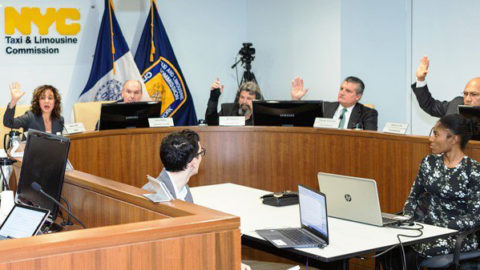Uber’s Contractual Bar on Class Arbitration Results In 12,500+ Individual Arbitration Claims
Earlier in the year we wrote about the U.S. Supreme Court held in Epic Systems Corporation v. Lewis, an important decision finding mandatory class and collection action waivers in arbitration agreements to be enforceable. The Epic Systems case was hailed as a victory by a business community growing increasingly weary of what I’ll call “group” claims for simplicity purposes (i.e., class actions, where employees are automatically included unless they opt-out, and collective actions, where they need to opt-in to participate). Many companies without arbitration clauses in their contracts and agreements took steps to include them, while those who already had them rushed to update their arbitration clauses to include group claim waivers.
Uber is one such company; however, as they are quickly discovering, perhaps a one-size-fits-all approach is not the best. Before we discuss Uber’s current predicament (and whether it is, in reality, a cunning strategy to avoid dispute resolution in the first place as a recently-filed California proceeding alleges), let’s first recap what arbitration is all about.
In brief, arbitration is a private dispute resolution process. Rather than submitting their dispute to a court, the parties contractually agree that any disputes will be heard by a neutral third party, who will thereafter render a final and binding decision that is for the most part not subject to further review absent a showing of wrongdoing (fraud, collusion, etc.). Resolution of disputes through arbitration has become more popular over the years as the costs associated with traditional litigation have steadily increased. While arbitration itself can be costly, leading many people to question whether or not there are really any savings in arbitrating as opposed to litigating, the process does frequently result in a faster and more efficient resolution of disputes, and oftentimes at a lower cost. However, these costs can quickly disappear when arbitration is conducted on a group basis involving multiple claimants. That is because group claims typically generate huge legal fees, hence the reason Plaintiffs’ attorneys find them more attractive than individual claims.
To avoid group claims and the oftentimes staggering costs that go along with them, companies have been increasingly including class and collective action waivers in their arbitration agreements. Uber has been at the forefront of this movement. The company has successfully won numerous cases across the country challenging the enforceability of their arbitration provisions and group waivers, and the Epic Systems case effectively put an end to those challenges. Drivers with claims against Uber now have no choice but to file individual arbitration claims against the company.
Perhaps Uber thought contractually barring group resolution of claims would dissuade scores of drivers from asserting claims individually. If so, they were mistaken. There are likely hundreds of thousands of arbitration claims pending against Uber nationwide, and as a recent case filed in a California District Court suggests, Uber has been dragging its feet in addressing them. Specifically, on December 5, 2018 a group of 12,501 drivers filed a petition in the U.S. District Court for the Northern District of California, seeking to compel Uber to arbitrate their claims; all of which were filed in a mere five-month period. According to the petition filed in that case, Abadilla v. Uber Technologies, Inc., Uber has paid the initial filing fee in only 296 of the cases, arbitrators have been appointed in 47 of the cases, and the arbitrator’s initial fee has only been paid in six cases. The petition notes that in defending the validity of its arbitration provisions to the Ninth Circuit, Uber agreed to pay individual claimants’ arbitration fees, and states that its failure to do so is evidence of the company’s bad faith. According to a motion that accompanied the petition, “Uber’s actions make clear that it does not actually support arbitration; rather, it supports avoiding any method of dispute resolution, no matter the venue.” Whether this is true or not remains to be seen, though it should be pointed out that Uber rejected a proposed resolution of the backlog that would have involved nine “bellwether” arbitrations followed by mediation of the balance based upon the outcomes. Mediation is a dispute resolution process similar to arbitration, however it results in a non-binding decision.
The Abadilla case is a classic example of “be careful of what you wish for.” Uber has contractually required its drivers to arbitrate their claims individually (i.e., not grouped with other drivers’ claims), however Uber is allegedly not holding up its part of the bargain, by paying the fees and getting those individual arbitrations underway. Whether this is because it underestimated the number of potential claims that would be filed, or the filing fees it was agreeing to pay (over $18M for the claims filed by the Abadilla petitioners) is anyone’s guess. It’s probably a combination of both.
It should be noted that the same law firm filed all 12,501 arbitration claims at issue in Abadilla. Perhaps this signals a new trend for the plaintiffs’ bar; if they can’t overwhelm target companies with group arbitration claims, they will do so by flooding them with individual arbitration claims, and then force them to arbitrate (or settle) when the target company can’t handle it all.
In any event, Uber’s backlog of arbitration claims underscores the fact that one-size does not fit all. Barring group arbitration through waivers may be smart where there are fewer potential driver claimants, while not when there are more. In a similar vein, a group arbitration waiver may make sense for contracts with customers or for employment agreements, but not necessarily for driver agreements. As with any decision having potential implications of this sort, I recommend that you speak with your attorneys as soon as possible regarding whether class and collective action waivers are appropriate in all the situations where your company requires them.



